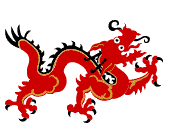I was a Navy Corpsman with the 1st Marine Division in 1966, stationed in Chu Lai. I worked in Triage where we mopped up the blood and gore that the war produced the dead and wounded. The chaff of battle, the casualties. It seemed a hopeless, never ending job. I hate war! In my Medical battalion there were only Navy surgeons and Hospital Corpsmen--no nurses (damned). The Corpsmen learned their s--- very fast and it was a hard school. It was hard school for all us GIs no matter what our MOS--learn or die! We did all kinds of outlandish stuff. We treated our own, VC, NVA and we even delivered babies and performed an occasional C-section. We were situated on a bluff overlooking the South China Sea. It was beautiful and when the wind was fresh off the ocean it was even close to comfo RTAFBle in the swelter and humidity at those latitudes, even though it was 115 degrees in the shade. The time was 1438 and the only action we had that day were three heat casualties and running a regular sick call--thank God. We spent most of the day getting IVs dressing materials, tourniquets and other supplies for the inevitable onslaught of pending casualties. It was a nice break! Then we got the call, "chopper with two wounded." We didn't know what kind of wounds, so we prepared for the worst. Then the stretcher-bearers brought in a DOG? Next thing you know they will be bringing us damn ducks to treat! Right behind the dog there staggered in a walking wounded Air Force guy. We put him on a stretcher and all he wanted to know was, "How is my dog?" Well now I understood. DOG was in the K-9 Corps and "fly boy" was his handler. They both had shrapnel wounds. Nothing major it turned out. But we didn't know s--- about veterinarian medicine. We did know that all biological systems are very much the same. We cleaned their wounds, packed them with drains and dressed them. Then we gave the handler his tetanus toxic, streptomycin and penicillin. But we didn't know the dosage of medications for DOG. We were not veterinarians. Well we decided to use a formula based on weight used to figure out dosage for young children. We decided to keep them overnight for observation, but where should the dog stay--certainly not on a human ward. We thought maybe the medical supply tent. The dog's handler would have nothing to do with that--he wanted to be with his dog! He said, "Either the dog stays with me or I stay with the dog." The dog and handler were given cots next to each other in the surgical ward. The next day some officer from battalion or division went through the wards passing medals. He pinned a Purple Heart on the dog handler and passed up the dog. I never could figure that one out. Didn't DOG serve as admirably as his handler? My impression of the dog and his handler were that there was a GREAT bond that I very seldom saw between men in the same unit. Maybe It's because dog is just simply loyal, and the handler knows that and loves him for it. I do know it is a unique relationship unlike any other. I envied that.
|

